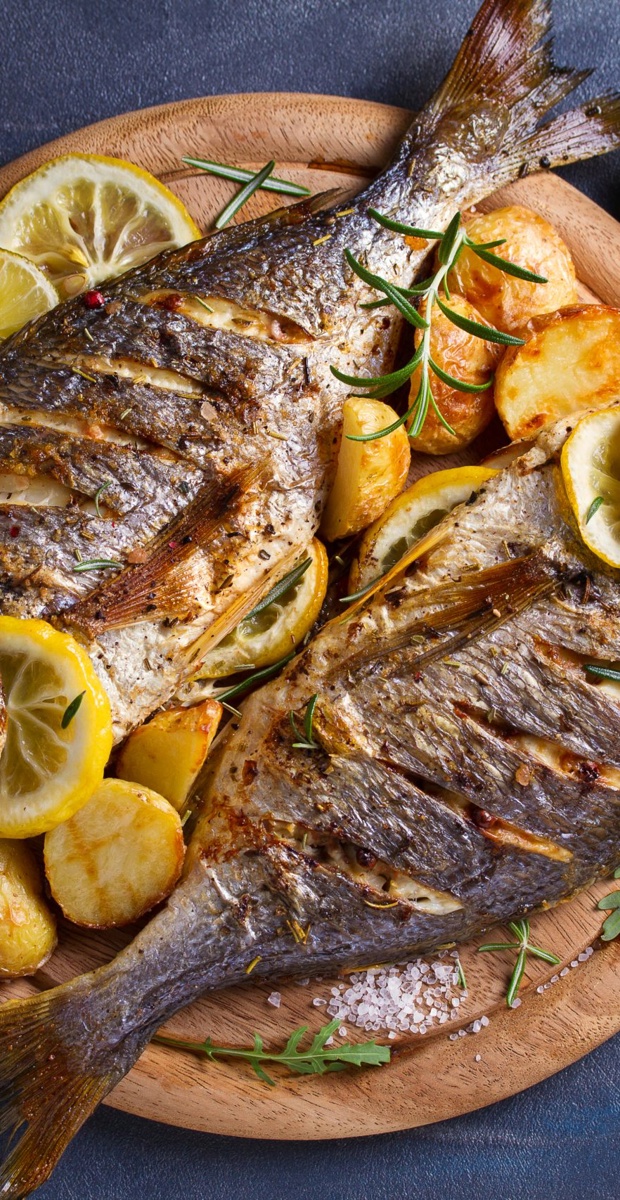No. Fish is an excellent source of omega-3, which is essential to the proper development of the baby. Although some fish contain significant amounts of contaminants, it is important during pregnancy and the years of fertility to choose fish with the most omega-3 and the fewer contaminants.
At the Montreal Diet Dispensary, it is recommended for pregnant women to eat two portions (150 g or 5 oz each) of fish per week. This recommendation can cover the basic needs of
omega-3 for the health of women and the proper development of her baby.
However, some fish contain significant amounts of contaminants such as mercury, which may interfere with the optimal development of the baby. For this reason,
some fish should be favored more than others.
| FISH |
RECOMMENDED QUANTITY |
| Sardines* |
Unlimited |
| Light tuna, ideally in water
(may be labeled yellowfin) |
Unlimited |
| Salmon* (several species: pink, sockeye, keta and Atlantic) |
Unlimited |
| Herring* |
Unlimited |
| Atlantic mackerel, blue mackerel * |
Unlimited |
| Sprats (similar to herring and sardines)
Available mostly in ethnic grocery stores |
Unlimited |
| Pacific cod, except sablefish (United States) |
Unlimited |
| Rainbow trout * |
Unlimited |
| Tilapia, fishing, angler fish, mahi mahi, turbot, smelt, char |
Unlimited |
| White tuna (also called albacore or yellowfin tuna in English.
Note that the French appellation Albacore tuna is a pale tuna and can be eaten without restriction). |
Maximum 300 g or 10 oz per week |
| Fresh / frozen tuna, marlin, orange roughy and escolar |
Maximum 150 g or 5 oz per month |
| Swordfish, shark, bass, St. Lawrence eel, pike, walleye, muskellunge, lake trout (trout), burbot, king mackerel or bonito also called Wahoo, tile Gulf, bar, sablefish, halibut, grouper and redfish . |
To avoid |
* Fish rich in omega-3
If you practice sport fishing, consult the consumption guidelines for fish caught in Quebec on the website of the
Ministry of Sustainable Development, Environment and Parks.
